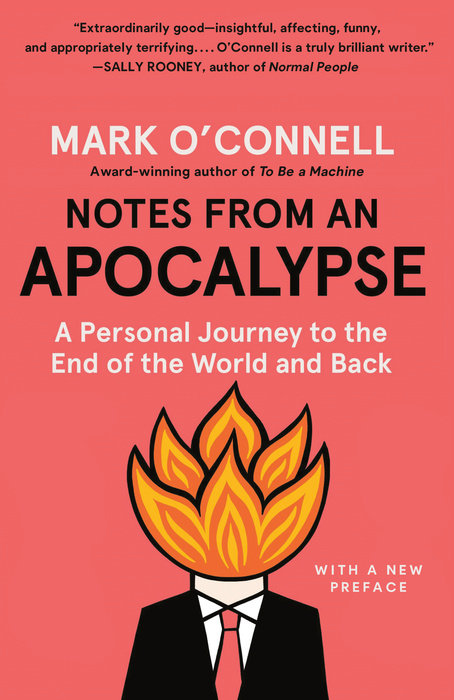
In our morning reading: reviews of novels by Henry Hoke and Keith Rosson, Genevieve Plunkett on fiction, and more.
Afternoon Bites: Mark O’Connell Interviewed, Alex Ross on Richard Wagner and Comics, Famous NYC Trees, and More

In our afternoon reading: an interview with Mark O’Connell, when Richard Wagner met superheroes, and more.
Afternoon Bites: Alexandra Chang, Emma Straub’s Latest, Ariana Reines, Tori Amos Interviewed, and More

In our afternoon reading: an interview with Alexandra Chang, thoughts on Emma Straub’s new novel, and more.
Afternoon Bites: Rebecca Solnit, Julia Alvarez Interviewed, Mark O’Connell, Sam McPheeters’s Latest, and More

In our afternoon reading: interviews with Rebecca Solnit and Julia Alvarez, new writing from Beth Lisick, and more.
We Are Alive: On Mark O’Connell’s “Notes From An Apocalypse”

Dear friends of my mother live in francophone Europe, where the currents of post-war diaspora deposited them. They have one child, and he died in his 20s. He was a non-blood cousin, distantly perfect—in musical ability, marks, temperament. Through Notes from an Apocalypse, I thought about catastrophe and bereavement and him. I thought about tragedy and scale, about the circumstances of my U.S. citizenship and my parents as Vietnamese youth in the 1970s, and about how cruelly cases I’ve read for law school teem with injury and death, the phrase “could not recover for loss of companionship.” I remembered my cousin having been mourned and gone before I was even a teenager, and I was going to write something neatly connected, revoltingly so, to having watched personal apocalypse in one’s family, in periphery. I remembered my feet dangling during the announcement. Abject smallness. Upon resurrecting the whole memory for inspection, though, I found that I’d been in college, the summer after my first year. 17, the body in that memory gradually became—I’d had a first drink, many; a first kiss. I remember now a hotel bedspread in central California, dry-heaving at the revelation that my parents hadn’t told me when he died, for fear of burdening me.
